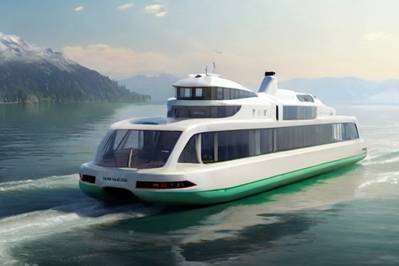Navigating Green Waters: Alternative Fuels in the Maritime Industry
The maritime transportation sector plays the most important role in global trade and transports. There is no earthly way to avoid this type of shipping as the entire world’s economic activities are dependent on it. However, this industry has been heavily reliant on fossil fuels that have harmful effects on the environment such as causing climate change. At the same time, the whole world is aiming for renewable sources of fuels to replace fossil fuels and thus limit carbon emissions. Instead of petroleum products such as petrol, diesel, heavy oil, gas, and liquid natural gas, fuels like biofuels, biogas, wind power, hydrogen and solar power offers a solution to this problem in shipping. We will examine in this article what alternative fuels the maritime world can benefit from it and whether those alternative fuels can be an ultimate game changer in our global maritime transportation.
Challenges with conventional fuels: Conventional maritime fuels such as heavy fuel oil (HFO) and marine diesel can contaminate the environment by emitting a variety of pollutants, including sulphur oxides, nitrogen oxides, carbon dioxide and other airborne contaminants harmful to humans and animal life. Over time, as the world became increasingly sensitive towards climate change mitigation activities, the industry became subject to strict emission regulations. Consequently, conventional fuel sources began to present an economic dilemma for ship operators as oil prices became increasingly unstable.
LNG as a Transition Fuel: LNG or liquefied natural gas has become a popular transitional fuel in shipping. LNG burns cleaner, emitting far less sulphur oxides (SOx), nitrogen oxides (NOx) as well as no particulate matter compared with traditional fuels. Many new vessels are built with dual-fuelled engines that can run on LNG as well as traditional fuels.
Hydrogen-powered ships: Hydrogen and its potential as an energy carrier have been on the radar of the maritime industry already. Hydrogen fuel cells produce electricity on board, which in turn drives the ship’s propeller with the only by-product water vapour. Hydrogen as an energy source is a zero-emission fuel, but effective techniques for its storage and distribution in ports and terminals have to be developed.
Biofuels: Given that ships currently use fossil fuels, which are harmful to the environment, a possible solution would be to use biofuels, which are produced from organic materials. These fuels are capable of being obtained from a range of sources such as algae, waste cooking oil, and agricultural waste. Biofuels are well-adapted to this application since they can be used in existing ship engines and do not require significant modifications.
Wind Propulsion Systems: On ships, analogous to the ways they’ve always used the wind upwind rigs and sails, the emerging technology allows ships to harness the wind. Rotor sails are particularly promising because they don’t require the wind to blow in a particular direction to capture powerful wind forces. Wind-assist systems (ie, sails as well as rotors) have been proven to significantly reduce fuel use. Be it on new or existing ships, they can be installed in a cost-effective way.
Electrification of Maritime Transport Marine is a perfect non-iron environment for electric propulsion, and electric systems are becoming mainstream in short-haul and coastal shipping, mainly because battery-electric vessels are completely emission-free while operating. Future innovation in battery technology will further increase the range and efficiency of electric ships.
Regulatory Initiatives and Industry Collaboration: The governments and relevant international organisations are making regulatory regimes to promote the utilisation of alternative fuels at sea. Meanwhile, the market players are sharing information, developing joint infrastructure and working to overcome common obstacles in their collective transition to sustainable fuels. For instance, development programmes and projects like the Global Maritime Energy Efficiency Partnerships (GloMEEP) with UN Environment.
In conclusion, I’d like to emphasise that the maritime world is at a turning point. In the near future, ships will have to be able to offer an alternative to the use of fossil fuels. The reason behind that is simple, as an alternative to these fossil fuels could be cheaper and less harmful to the environment than traditional fossil fuels. There is still a long road to go, but if technology keeps advancing at this pace and if regulators give their approval, one day it could indeed be possible to set sail and propel large ships through the oceans using solutions other than traditional fossil fuels.




